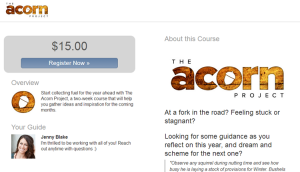Marketers, Leslie Fine said, will increasingly focus more on their destinations and less on the step-by-step turns to get there.

You don’t have to go very far in the marketing tech space these days to bump into predictive technology that scores future customers, system intelligence that puts unnoticed pieces of data together or machine learning that recognizes useful patterns in piles of data.
More and more, smart marketing tools are generating insights, assisting with or making decisions, and even taking actions.
But this calls into question what the field is about. Since the first time someone stimulated interest in a new product, marketers have assembled information and made choices about ways to get the word out about their products, increase the number of customers, generate customer loyalty and boost sales.
So it’s not out of bounds to ask: what is the marketer’s role when increasingly self-reliant and autonomous intelligent software does those things?
To get some perspective on this, I checked in with Leslie Fine, Salesforce Vice President of Product, Data and Analytics.
Marketing is becoming more about the strategy, she said, and “the platform will help with setting tactics and logistics.”
Not coincidentally, Salesforce has been one of the leaders in smartening up its industry-defining platforms to take over tactics and logistics.
In 2014, for instance, it bought the Palo Alto, California-based startup RelateIQ, which had developed an intelligent customer relationship management (CRM) product that acts like an omniscient assistant.
It keeps track of marketing and sales efforts in part by piecing together data gleaned from emails, calendars, phone call records and more. It tells the user which customers should be contacted, which aren’t worth the time, how customers are connected and how to avoid making multiple overtures to the same customer from different people in your organization.
Last fall, to take another example, Salesforce expanded the predictive intelligence in its core Journey Builder to offer such capabilities as recommending which graphic or white paper should be sent to a prospect or customer.
These are just some of the steps the company is taking as it marches toward the age of cognitive marketing, the next step in marketing intelligence outlined for me recently by IDC Research Manager Gerry Murray.
The destination, not the map
Intelligent software is increasingly developing an ability to think, he said, and he predicted that the several dozen marketing-related applications that currently earn the “cognitive” label will become hundreds within a year.
Fine pointed out that before the current wave of predictive scoring of customers came about, marketers were reliant on “triggers [that] were pretty deterministic and rules-driven,” primarily through the tracking of clicks and other actions in web site and apps.
Now, predictive tools make models to forecast the best customers, and then recommendations about what actions to take and steps to get there.
It’s like the difference between Google Maps automatically pointing you to where you want to go, Fine said, and having to frequently look at a map and decide what turns to take.
The emerging “magic,” she said, is the growing ability of marketers to forget about checking the map and focus more on the destination.
“My point of view,” she said, “is that marketers want to find the suitable buyable signals that don’t take their time and resources,” so they can “focus on the high-level mission.”
This corresponds to Murray’s viewpoint: “Marketers need to move up the food chain of decision-making.”
“I know I want to interact with my customer,” Fine said. But the way to do that will increasingly become: “Machine, choose the right time to engage, [and] choose the best channel for engagement.”
“In the future,” Fine said, “marketing is goal-setting.”
(Some images used under license from Shutterstock.com.)
Marketing Land – Internet Marketing News, Strategies & Tips
(15)








